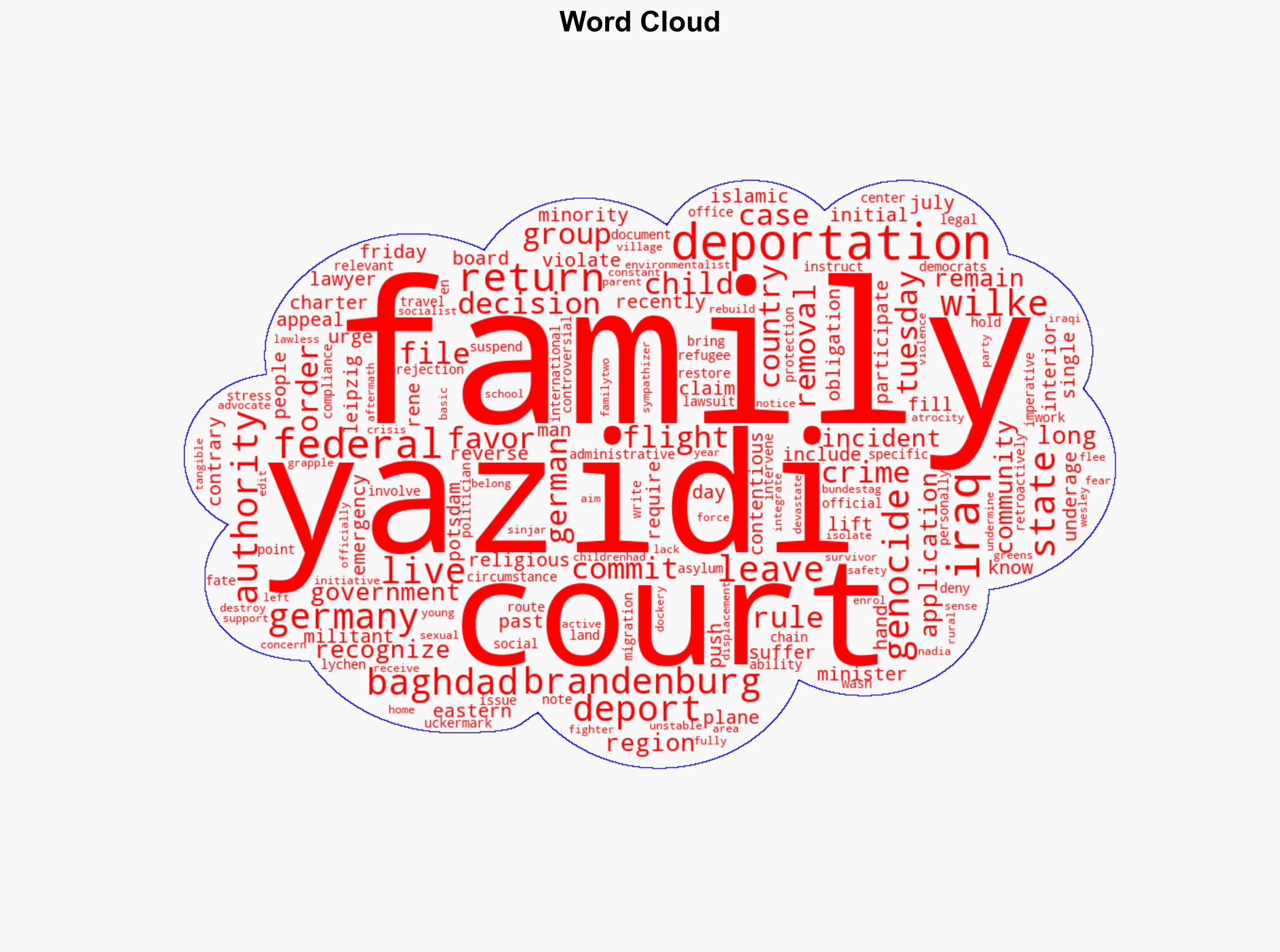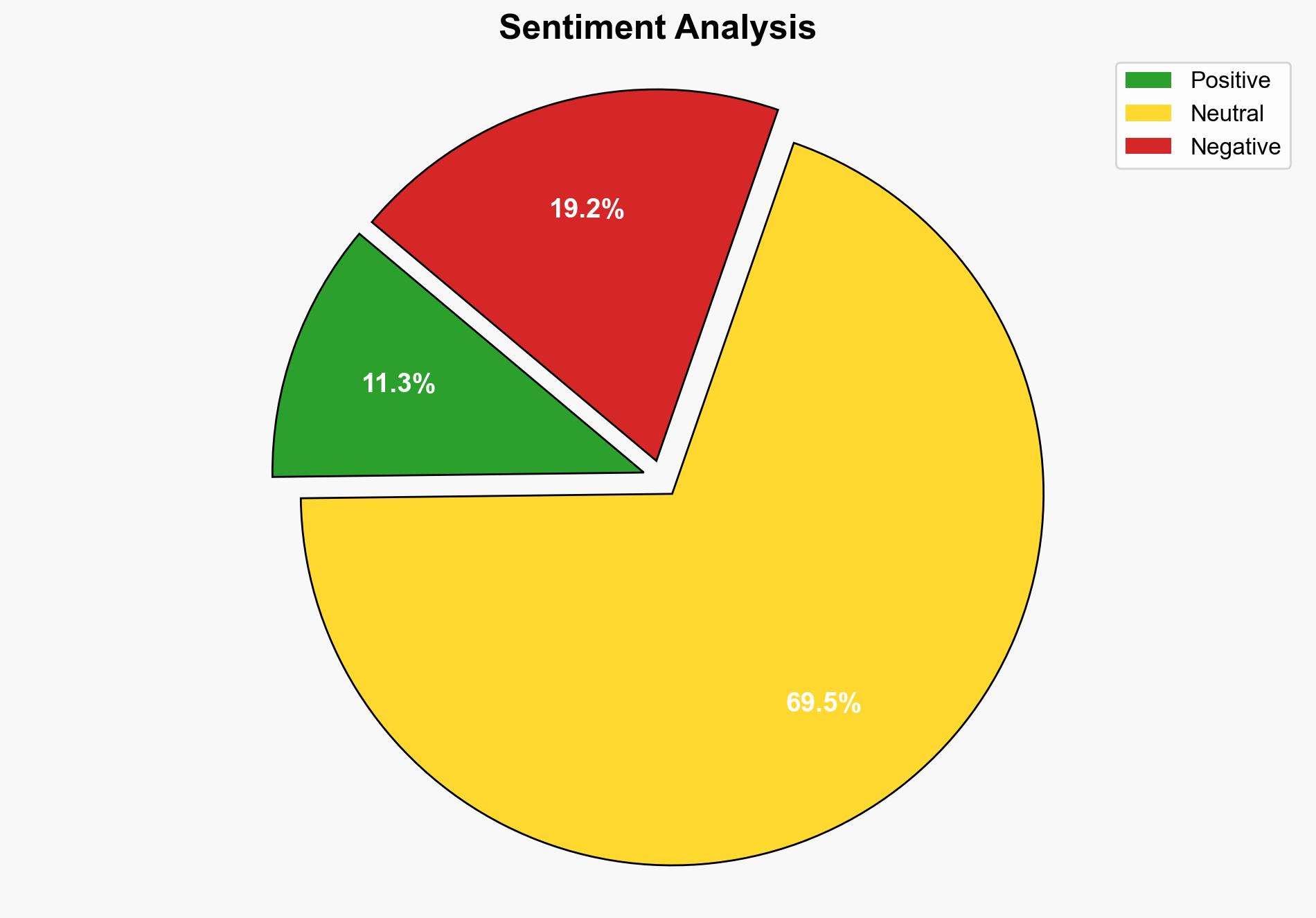Germany urged to reverse Yazidi family’s removal to Iraq – DW (English)
Published on: 2025-07-25
Intelligence Report: Germany urged to reverse Yazidi family’s removal to Iraq – DW (English)
1. BLUF (Bottom Line Up Front)
Germany’s decision to deport a Yazidi family to Iraq, despite a court ruling against it, has sparked significant controversy. The most supported hypothesis is that the deportation was a bureaucratic oversight rather than a deliberate policy decision. Confidence in this assessment is moderate due to conflicting reports and the complexity of bureaucratic processes. It is recommended that Germany reviews its deportation procedures to ensure compliance with legal rulings and international human rights standards.
2. Competing Hypotheses
1. **Bureaucratic Oversight Hypothesis**: The deportation of the Yazidi family was the result of a bureaucratic error or miscommunication between federal and state authorities, leading to non-compliance with the court’s decision.
2. **Deliberate Policy Decision Hypothesis**: The deportation reflects a deliberate decision by certain factions within the German government to enforce strict immigration policies, potentially using the Yazidi family as a precedent to deter future asylum claims.
Using ACH 2.0, the first hypothesis is better supported by the sequence of events, including the court ruling in favor of the family and the subsequent push by officials to reverse the deportation. The second hypothesis lacks substantial evidence, as there is no clear indication of a coordinated policy shift targeting Yazidi or similar groups.
3. Key Assumptions and Red Flags
– **Assumptions**: It is assumed that all relevant authorities were aware of the court ruling and that the deportation was not intentionally ignoring legal decisions.
– **Red Flags**: The rapid deportation despite legal opposition suggests potential gaps in communication or procedural adherence. The claim that the flight was intended for individuals with criminal records raises questions about the selection process for deportation.
– **Blind Spots**: The internal decision-making processes within the German federal and state authorities remain opaque, limiting full understanding of the motivations behind the deportation.
4. Implications and Strategic Risks
– **Geopolitical**: This incident could strain Germany’s international reputation regarding human rights and asylum policies, particularly with communities and nations sensitive to the Yazidi plight.
– **Domestic**: The case may fuel political debates within Germany, impacting public opinion and potentially influencing future immigration policies.
– **Psychological**: The deportation has likely caused significant distress to the Yazidi family and may deter other asylum seekers from trusting the legal protections offered by Germany.
5. Recommendations and Outlook
- Conduct a comprehensive review of the deportation process to identify and rectify procedural failures.
- Enhance communication channels between federal and state authorities to prevent similar incidents.
- Scenario Projections:
- **Best Case**: The family is returned to Germany, and procedural reforms prevent future errors.
- **Worst Case**: Continued deportations without legal compliance lead to international condemnation and domestic unrest.
- **Most Likely**: The family is returned, but systemic issues persist, requiring ongoing oversight and reform.
6. Key Individuals and Entities
– Rene Wilke
– The Yazidi family involved
– Potsdam Administrative Court
7. Thematic Tags
national security threats, human rights, immigration policy, regional focus





